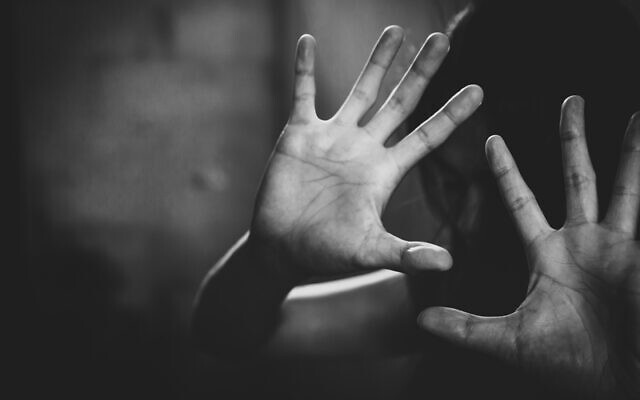Standing up to the scourge of domestic violence
'I believe it is no longer a taboo for rabbis to discuss domestic violence and the ways in which community leaders can combat and assist victims in need'.
OUR country is facing a crisis. One that seems to affect people of all ages, backgrounds and in all locations.
I am not talking about COVID-19. I am talking about the scourge of family violence that was already a problem before the global pandemic caused widespread lockdowns and everyday life to close down.
Statistics from major domestic violence support organisations such as 1800 RESPECT have noted that the lockdowns have led to a significant and sustained escalation in family violence. Many victims are isolated at home with their abusers and their situation is compounded by financial and job instability, and the loss of social and community supports. There has been a marked uptick in alcohol and drug abuse, and domestic violence is at new levels not seen before.
Domestic violence is a pattern of abusive behaviour in which one person seeks to control and dominate the other. This abuse does not take one form. While physical violence is common, sexual, emotional, social, spiritual and financial abuse can be equally as devastating. Isolating a person from their family and friends as well as controlling their access to money, preventing them from making life choices about how they want to live and threatening them are common forms.
The ongoing nature of domestic violence often shatters a victim’s confidence and their ability to leave their violent partner. Escalations in behaviour by the perpetrator are extremely common.
During the pandemic, many vulnerable people are in a very dangerous situation. As people’s movements have been restricted, it has often been women and children who have been left in a difficult position. While many industries and services offer online support, victims of domestic violence cannot always reach out. This is because they are often unsafe in their own homes and often monitored and unable to access services. There are also fewer opportunities for respite from violence such as school, work and leisure, compounded by the ongoing anxiety of ‘walking on eggshells’.
Jewish Care Victoria reported that around half of all referrals to the service coordination (social work) team relate to family violence or discord, with women overwhelmingly the majority of victim-survivors. Jewish Care also noted that research suggests that it takes a significantly longer period of time for a Jewish woman to report or seek help in relation to domestic violence, compared to women in the general community – likely reflecting the impact of stigma, as well as other social, cultural and religious factors.
According to JewishCare in NSW, at any one time there could be 35-45 domestic violence clients seeking their assistance. Many seeking help become long-term clients as they often need further assistance with housing, employment or mental health support as part of navigating their circumstances. JewishCare NSW also runs a weekly domestic violence therapeutic support group for women.
Under lockdown, both organisations reported a spike in persons experiencing domestic violence who were seeking help.
Reading about the uptick in domestic violence, compounded by the global pandemic, feels extremely overwhelming and disheartening.
So what can be done? What can our community do to help those who are in need?
To make change, we have to promote respectful relationships and invoke attitudes that do not maintain the unacceptable status quo. Challenging the underlying drivers of family violence – namely, gender inequality, stereotypes about masculinity, and community attitudes that condone or excuse violence – is key to prevention, alongside greater supports and services for those who are affected.
Last year, Jewish Care in Victoria launched a campaign with brightly coloured posters including slogans such as ‘There’s no excuse for abuse’ and ‘Relationships should feel safe.’ These posters aimed to tackle some of the behaviours that may be abusive or indicative of domestic violence with information about where to seek help.
There have been some positive developments during this pandemic in relation to domestic violence funding, with the Australian government dedicating millions of dollars in increased support to both domestic violence help organisations and mental health support services.
There has also been a greater understanding of the issues that lead to domestic violence. In Victoria and NSW there have for a number of years been dedicated ministerial government positions tasked with tackling domestic violence.
The pandemic has shown us that things can be done rapidly. The increased understanding of domestic violence and the threats that victims are facing have been sensitively dealt with by the government, by noting that any person who is in fear of their safety is not obliged to adhere to lockdown and isolation.
As a community rabbi with a Masters in Social Work, I believe it is no longer a taboo for rabbis to discuss domestic violence and the ways in which community leaders can combat and assist victims in need.
I implore you or anyone you know that may be experiencing domestic violence to reach out to a support organisation. The situation is not your fault and there is help available.
Gabi Kaltmann is rabbi of The Ark Centre. If you or someone you know needs help, contact 1800 RESPECT on 1800 737 732 or Jewish Care on (03) 8517 5999.


comments